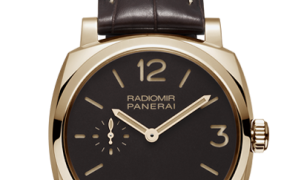 3 Terms
3 TermsHome > Industry/Domain > Chronometry > Clock
Clock
Any instrument other than a watch for measuring or indicating time, especially a mechanical or electronic device having a numbered dial and moving hands or a digital display.
Industry: Chronometry
Add a new termContributors in Clock
Clock
Anniversary clock
Chronometry; Clock
The name comes from the fact that when it was first invented, it needed winding just once a year on its anniversary (approximately 400 days). characterised by a glass dome and a rotating pendulum. ...
Anti-friction roller
Chronometry; Clock
A type of bearing in which two or more rollers are used to carry a pivot. Anti-friction rollers used in clocks take the form of pivoted wheels without teeth, arranged in different planes with the ...
American regulator
Chronometry; Clock
About 1870 the term 'regulator' was employed by American clock manufacturers advertising spring-driven (without fusees) recoil escapement, non-temperature-compensating pendulum wall clocks. ...
Winding key
Chronometry; Clock
The tool for winding a clock. Crank keys are best suited for weight clocks and eight-day fusee clocks, while the plate key is best suited to going-barrel spring clocks and clocks requiring a high ...
Wing nut
Chronometry; Clock
Nuts with flattened 'ears', allowing easy adjustment by the fingers. They are sometimes found in place of a knurled rating nut at the lower end of a pendulum.
Wire gauge
Chronometry; Clock
A steel plate with a range of graduated round holes or slots, accurately gauged to a standard legalised in 1883. Each hole is marked with the standard wire-gauge number, and the equivalent imperial ...
Wire line
Chronometry; Clock
Clocks with a longer going time than eight days require heavy weights or strong springs to drive them, and stranded steel-wire lines are often used. Steel lines, however, disfigure the barrel and ...
Featured blossaries
stanley soerianto
0
Terms
107
Blossaries
6
Followers
Nerve Cell Related Diseases
 5 Terms
5 Terms

